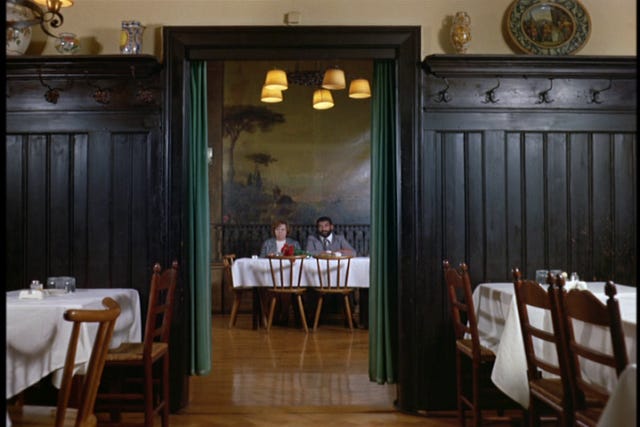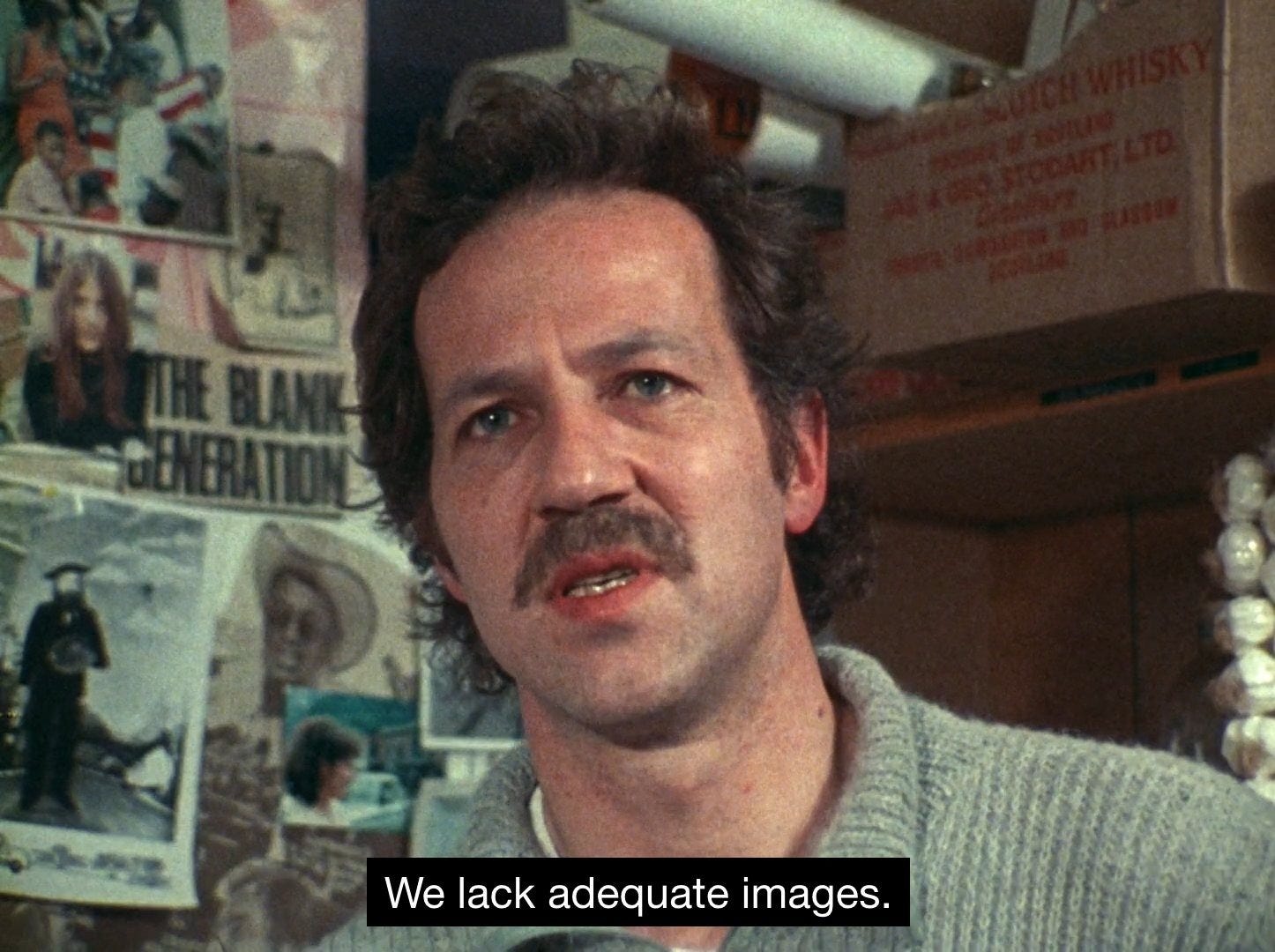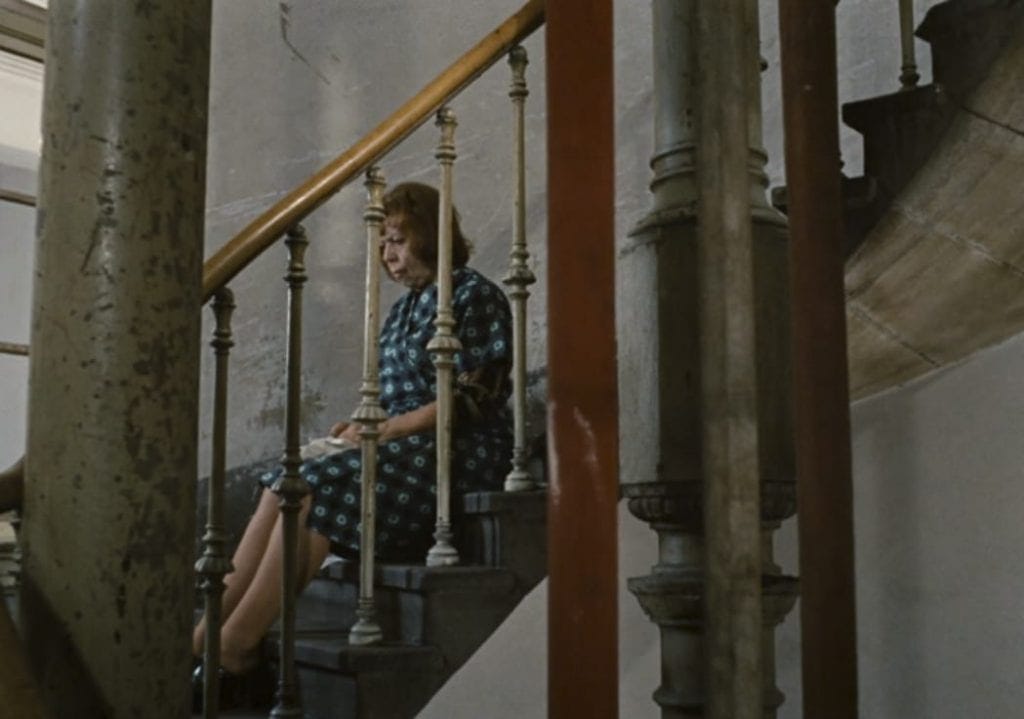Notes on New German Cinema
Ali: Fear Eats the Soul, and a movement marked by postwar reckoning and intentional discomfort
For reasons due to certain recent horrifying events, I am thinking about the filmmakers of the New German Cinema movement lately. Before I officially switched my major to film in college, I took a class at random as part of the freshman-year quest to see what topics interested me the most. The class? Simply titled: German Cinema. It was in this class (peppered mostly by male athletes trying to get an easy B) that I first learned the name “Werner Herzog,” and where I started to first appreciate Wim Wenders (one of my favorite directors to this day).
From my research - both academic and personal - I have come to think of the filmmakers of the New German Cinema movement of the 60s, 70s and 80s as a young generation of directors who craved - no, demanded - something new: new perspectives, new films, a new Germany. Filmmakers whose parents and grandparents may or may not have been members of the Nazi party, or at the very least were aware of what was happening under the Nazi regime as horrific atrocities unfolded. Filmmakers who then went on to create a new cinema, where thoughtfulness, stark reflection and a desire to make the audience sit with an image or an idea for longer than was comfortable were common markings of the movement. Though by no means morally or politically perfect, these filmmakers got what they wanted: an (eventual) film revolution.
These young Germans were seeking expression using a fresh film language. Their short, unstructured films, produced on very low budgets, reflected their philosophy that the German film should concern itself with contemporary German problems; the materialism of postwar society, the morality of the bourgeoisie, the alienation of youth, and the moral disaster of the Nazi legacy. Some of the filmmakers made autobiographical films in the belief that one's personal problem was also the world's problem.
[…]
Many of the young German filmmakers were strongly political. Disdainful of "artistry" and "entertainment", they believed that the film should serve as a forum for the dissemination of ideas and philosophies which challenged the established order. This early movement was rejected by the great majority of German filmgoers and was a financial disaster.
-Michael Fussell, “The New German Cinema”
In Rainer Werner Fassbinder’s Ali: Fear Eats the Soul, an older German cleaning lady (Emmi) falls in love with a much younger Moroccan immigrant (Ali) in postwar Germany and (implied) soon after the 1972 Munich Summer Olympics terrorist attack1. The film follows an unlikely love story underscored by the reality of racism and discrimination in contemporary German society. At one point, Emmi casually mentions in passing that her now deceased husband was a member of the Nazi party, and that she was too. “Everyone was,” she says, adding to the flippant nature of her admission that doesn’t feel like much of an admission at all. Ali doesn’t flinch at this. More than once, Emmi asks Ali in everyday conversation, “You know – Hitler?” To which Ali emotionlessly responds, "Ja (‘yes’), Hitler.”
Fassbinder’s intentional framing and timing are hard to ignore in this film: there are several lingering shots of the couple or one of the characters alone, standing or sitting still in a doorway or boxed in by some other element. While the mentions of Nazism, Hitler and racism in the dialogue are presented casually, the framing and the holding on one particular silent shot seems to say the exact opposite: Pay attention. Are you watching closely?
Thus, this would make for a bleak – but interesting – double feature alongside September 5 (2024).







